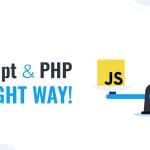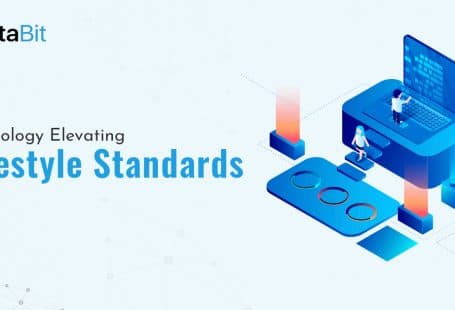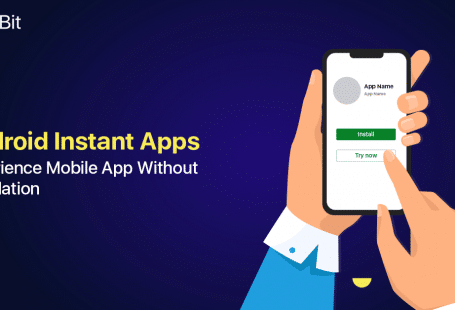‘The Time Keeps Changing’
The time never stops; it keeps changing. And with time, everything that is a part of it, changes!
With due respect to this tendency of time and change, a paradigm shift has arrived in technology as well.
For the sake of intelligent and innovative approaches, many large, mid, or small-sized firms are switching from websites to mobile applications. With the help of a mobile app development company to undertake the project’s development process, businesses worldwide are attempting to fast-track their ways in an efficient and productive manner to target a broader realm of audiences.
There are around 4 billion mobile phone users worldwide who obviously prefer mobile applications more. And, if you are not reaching out to them over the apps, then you are not living and leading the quality according to them, merely existing!
You don’t want that, right?
You want your target audience to notice and head towards your product/service.
For that to happen, you have to be on the same page with them. People enjoy and feel more convenience using mobile apps over a website or a desktop. Everything from booking a cab, tickets to entertainment and learning, it all has taken the face of a mobile application.
Such a situation demands you to make the presence of your product/service and brand felt. You have to reach exactly where your users tend to prefer, stay, and enjoy the most to grab their attention.
It’s no rocket science but plain logic we are talking about here!
However, making a mobile app is not that easy to do. A lot of things have to be considered throughout the process to turn your mobile app into a real success. The very important one here is the selection of the right mobile app development tools.
As technology has evolved for the use of mobile phones over desktop, it has transformed in the case of development tools as well. While many new contenders have arrived to assist and ease development, the existing ones have also come up with new versions or updates for betterment.
So, which ones seem to do wonders right now and can be expected to continue to do the same the next year?
Well, that’s exactly what we will be discussing in this writeup. We will uncover the tools that can be seen leading in 2021.
Mobile App Development Tools in 2021
A mobile app development tool, in simple words, is to support developers with various features and functionalities in developing mobile applications.
There are a variety of tools to initiate with your app development project. Nevertheless, here are some major ones to look forward to in 2021.
1. React Native
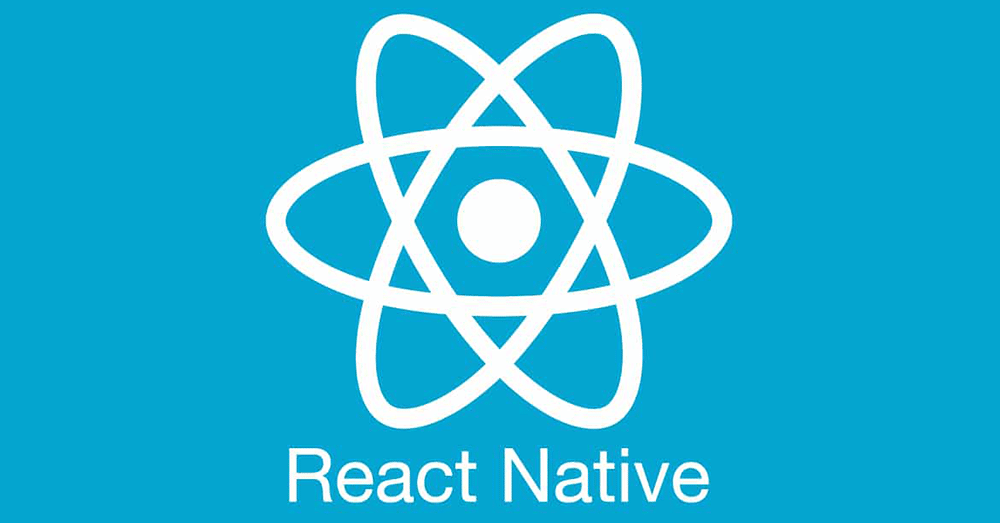
Topping our list is the React Native!
Created by the tech and social media giant Facebook, React Native is a popular open-source framework promoting the development for both the Android and iOS platforms. The developers can use React Native for the creation of high-performing apps with a shorter development cycle, faster deployment, and cost-efficiency.
One noteworthy trait of the React Native framework is that it not only entitles you to the development of highly native apps but also takes the proper UX (User Experience) into account.
You get access to various components such as views, text, images with React Native, all required to map native UI of an app.
Being owned by Facebook ultimately signifies a large online and active community of developers constantly trying to make space and scope for improvements.
Launch Year: 2015
Developer/Creator: Facebook
Language Used: Javascript / Typescript
Apps Built Using React Native: Facebook, Instagram, Soundcloud, Airbnb, and UberEats
2. Flutter

Flutter is Google’s creation, which has its UI toolkit for the development of really fantastic native applications using a single codebase for several platforms such as the mobile and desktop. It allows you to enrich your application with a powerful and extremely expressive UI.
With Flutter comes a vast range of customizable widgets that makes the development of native interfaces easy and instant. The native experience with impeccable features such as navigation, icons, fonts, etc. on both the end, i.e., developers’ and users’ is enjoyed by making use of Flutter.
Launch Year: 2017
Developer/Creator: Google
Language Used: Dart
Apps Built Using Flutter: Google Ads, Alibaba, Reflectly, Birch Finance, Hamilton Musical, Coach Yourself, Hookle, Cryptograph
3. Xamarin
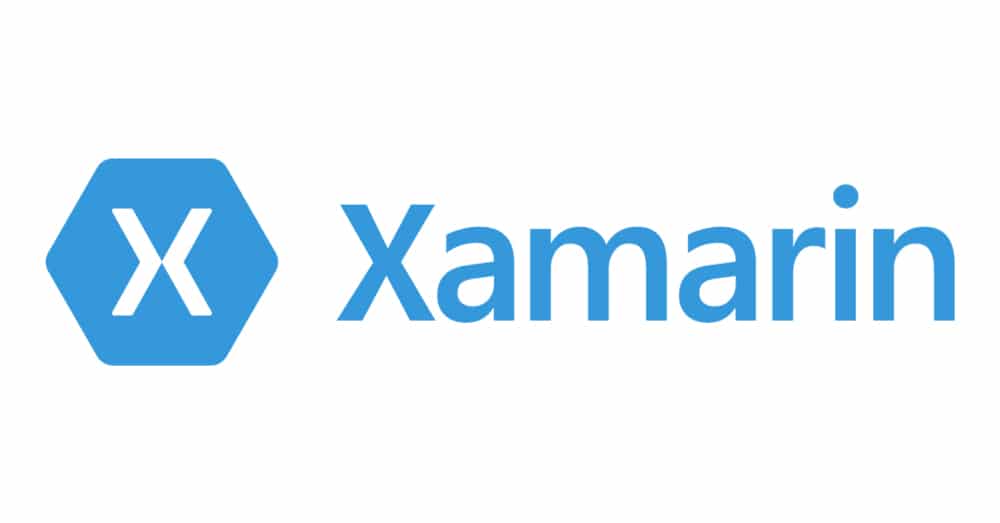
Developed and maintained by Microsoft, Xamarin is an open-source platform which with the use of .NET and C#, makes the development of hybrid mobile apps achievable.
In order to make this multi-platform such as Android, iOS, and Windows development effective, Xamarin extends the .NET dev platform with tools + libraries.
There is no doubt with the power Xamarin gets from a highly robust community. It has a large number of contributors, great documentation along with excellent customer support. And with native UI, the applications can be built with the native look and feel without compromising the wanted user experience.
Launch Year: 2011
Developer/Creator: Microsoft
Language Used: C#
Apps Built Using Xamarin: Azure mobile app, UPS mobile app, Alaska Airlines, Microsoft News App, Outback Steakhouse
4. Ionic
Always being the first name to come up in the tech talks is Ionic. It is an open-source UI (User Interface) toolkit for cross-platform development, i.e., native Android, iOS, and web apps.
What can never be ignored about Ionic is its templates. There is a far-reaching collection of default UI components like forms, filters, action sheets, list views, tab bars, and navigation menu that can be brought to use. Instead of being occupied with work on user interface components, developers can focus more on creating advanced and dynamic applications.
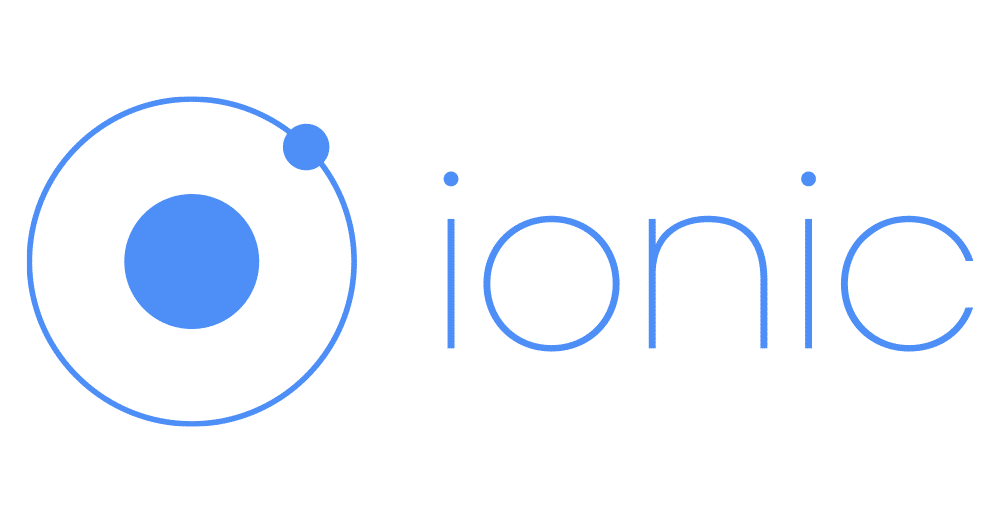
Already having an idea of, CSS, JavaScript, or HTML makes using the Ionic structure a lot more flexible. Just do so research to land on to the right mobile app development agency, and you can have a long way ahead with Ionic!
Launch Year: 2013
Developer/Creator: Drifty
Language Used: Typescript
Apps Built Using Ionic: GE Transportation, Amtrak, MarketWatch, Sworkit, Instant Pot
5. PhoneGap
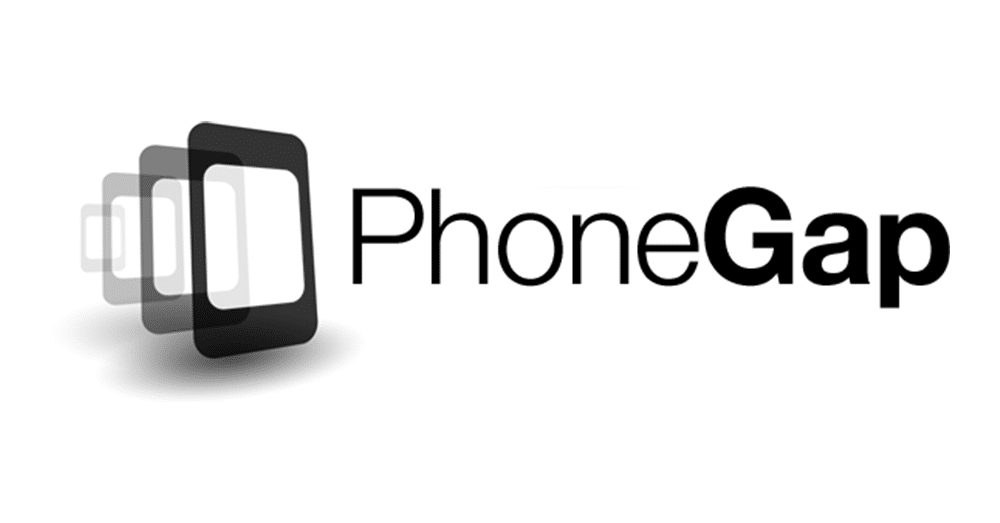
The title for a widely accepted, adopted, and appreciated framework goes to PhoneGap, developed initially by Adobe Systems and maintained now by Apache. It runs on the technologies such as HTML5, CSS3 at the core, making it reach and use the device’s hardware like camera, accelerometer, GPS, etc.
JavaScript is used widely in the arena of programming, and PhoneGap uses JavaScript to render the backend logic then have a competitive advantage.
You write one app that can be used across different platforms natively with PhoneGap.
Launch Year: 2009
Developer/Creator: Adobe Systems
Language Used: C# / Objective-C
Apps Built Using PhoneGap: Wikipedia, Health Tap, TripCase, Paylution, Builder
6. Framework 7

Framework 7, licensed under MIT, is a comprehensive framework for mobile app development for different platforms such as Android, iOS, and web.
While it usually serves the purpose of a prototyping tool, it has contributed to the complete app development as well.
Along with the opportunity to work with HTML, CSS, and Javascript with Framework 7, you receive a good number of tools to use with its ecosystem’s abundance of plugins.
Being an open-source platform makes it come out with updates on a regular basis. And the highly active developers community is undoubtedly the cherry on top.
Launch Year: 2014
Developer/Creator: iDangero.us
Language Used: jQuery/HTML
Apps Built Using Framework 7: Kidoverse, Cyberbrain IT Services, HICAPPS, Blokt, Wappler
7. Mobile Angular UI
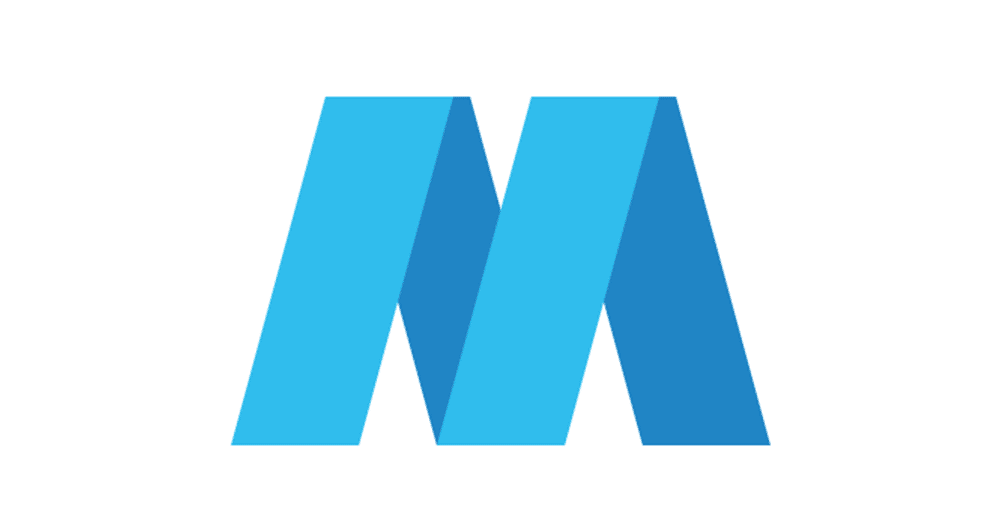
Another shaping the list of mobile app development frameworks to look forward to is Mobile Angular UI.
What makes Mobile Angular UI special is the availability of some very essential and particular mobile components such as switches, overlays, sidebars, scrollable areas, etc.
Out of so many features, the key one is that it lets you convert an existing desktop/web app into a mobile version by adding a CSS file in the framework to turn the application into touch-enabled and more responsive.
Launch Year: 2013
Developer/Creator: Maurizio Casimirri
Language Used: Angular / Bootstrap
Apps Built Using Mobile Angular UI: Hotelier News, Zaobao Mobile Website, Gunks, iKeyBox, Guezz It
8. jQuery Mobile

When you wish to build more with less coding, jQuery is what you need.
This touch-based framework has a ready-to-use JavaScript library with several plugins like Image Slider, Content Slider, and Pop-Up Boxes, etc.
jQuery is integrated with PhoneGap for the development of apps.
Writing different platform-specific codes each time is highly time-consuming. With jQuery Mobile, rather than writing a unique code and developing a particular application for each device or OS, you design a single dynamic, responsive site or app that works on all mobile phones and desktop platforms.
Launch Year: 2006
Developer/Creator: jQuery Team
Language Used: JavaScript
9. Onsen UI
OnsenUI is an open-source UI framework popular and widely used for designing the application user interface. This powerful tool is ideal for creating complex applications with utter ease. It shares resemblance in features with JavaScript, HTML5, and CSS support.
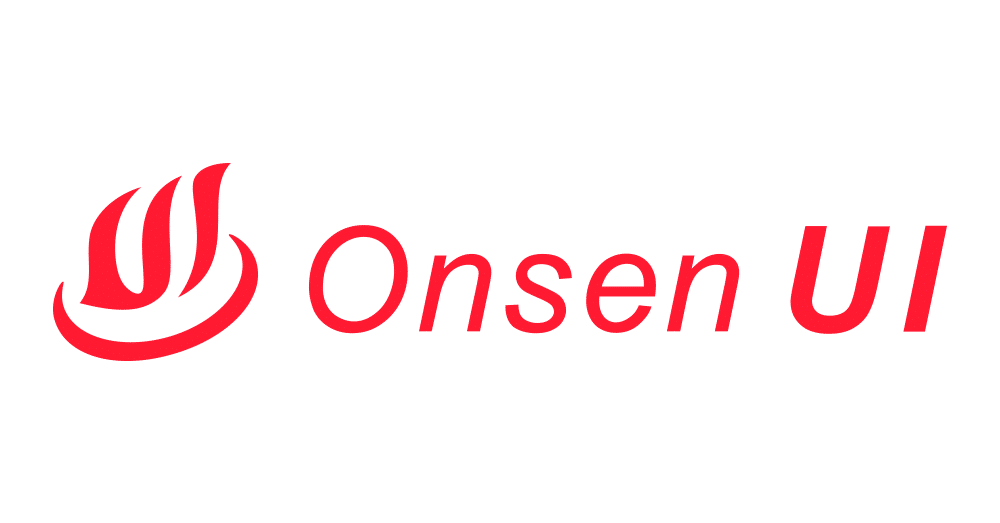
OnsenUI has in store a variety of pre-designed UI elements such as tabs, side menu, stack navigation, and various other components. These elements support performance on both android and iOS platforms by automatically optimizing themselves.
OnsenUI, with comprehensive tutorials and learning materials available at various levels of experience, becomes easy to learn and implement.
Launch Year: 2013
Developer/Creator: Monaca, Inc. / Asial Corporation
Language Used: JavaScriptApps Built Using OnsenUI: Opal, Offcourse Golf, Ski Patrol Mobile app, PopVox, Ohalog
10. Corona SDK

Do you have a gaming application in mind?
If yes, Corona is your framework to get one developed!
It is a cross-platform framework perfect for creating apps and games suitable for desktop and mobile.
Saving time and effort, you can create just one app and launch it on multiple platforms like Apple’s iPhone, iPad, Android phones, tablets, Amazon Fire, Windows Desktop, and many more.
OpenGL graphics is brought to use for the development of 2D games accompanied by fast and better performance.
Launch Year: 2009
Developer/Creator: Corona Labs
Language Used: Lua
Apps Built Using Corona SDK: Designer City, Gunman Taco Truck, Beasts Battle 2, Zip Zap
11. Appcelerator Titanium
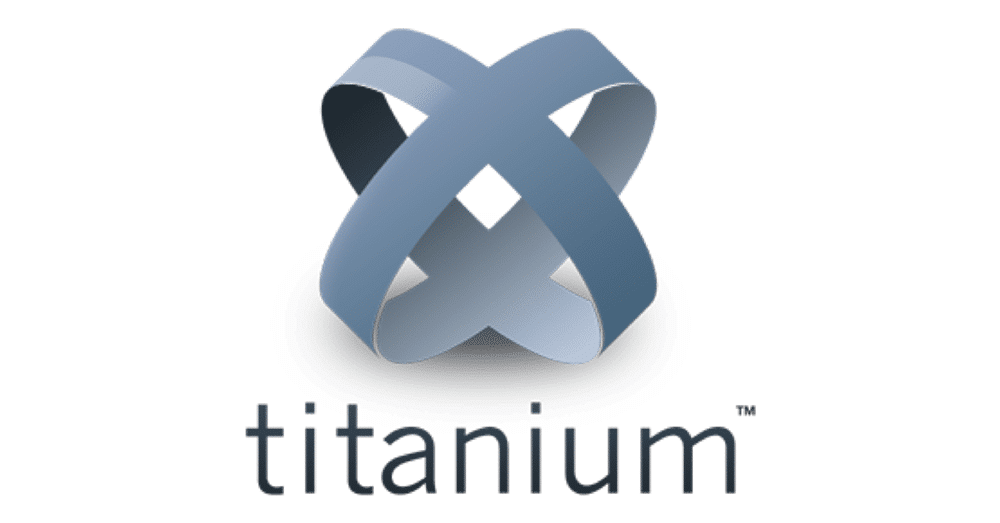
Appcelerator Titanium is an extensible development environment assisting with the development of truly native apps for different platforms using a single codebase.
It has a wide array of ready-to-use UI components for a smooth experience on the end user’s end.
With Appcelerator Titanium, you get to build custom APIs that can be used within your app in an error-free manner. The neatness and clarity in the Appcelerator Titanium case is so much that you can access your code anytime, anywhere, as it is connected to the cloud.
Launch Year: 2017
Developer/Creator: Appcelerator, Inc.
Language Used: JavaScript/XML
Apps Built Using Appcelerator Titanium: Avis, Blackbaud, Family Dollar, Comerica, MIT
The Verdict
The success of a project is highly driven by the type of framework it has used.
If your goal is to make your framework stand well on all expectations, you need to focus on choosing the right and suitable framework for it.
Whether it’s React Native, Ionic, or any other framework, each one has its own advantages to offer you. You can’t get lured by everyone and make a decision just like that. There has to be a single option to settle on to.
Every project has its own custom needs, which makes it mandatory to make a choice after ascertaining all the factors.
The need will then be left to find a suitable, skilled, and expert in the work, mobile app development agency, to take your project onto another higher stage.
2021 clearly seems to be sharing the acceptance of multiple popular frameworks. What’s left is to see who more will enter the race in the time ahead!


